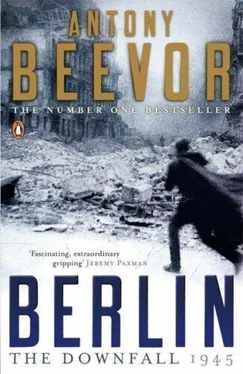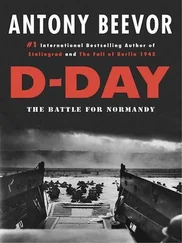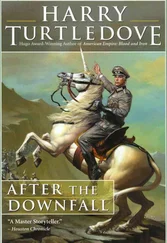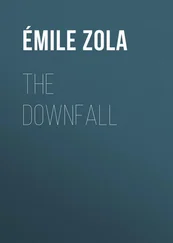ARMIES
Sixth SS Panzer, 5, 21, 82, 195
Eleventh SS Panzer, 88, 89
CORPS
III SS Germanische Panzer, 241, 267, 268
V SS Mountain, 225, 228, 241, 242, 260, 270, 329
XI SS Panzer, 225, 229, 246, 247, 260, 270, 329
DIVISIONS
Leibstandarte Adolf Hitler, 72, 151, 276, 387
Das Reich , 54
Feldherrnhalle , 71
11th SS Nordland , 241–2, 246, 256, 257, 264, 269, 283, 286, 291, 301, 319, 323, 352, 367, 382
SS Nederland , 241, 397
30. Fanuar , 72, 133, 182, 208, 219, 242, 270
Charlemagne , 116
20th (Estonian), 129
35th SS Police Grenadier, 332
36th SS Grenadier, 334
REGIMENTS AND UNITS
‘Danmark’, 257, 258, 302
‘Norge’, 257, 258, 302
‘Charlemagne’, 291–3, 302, 319, 321–2, 323, 352, 356–7
Latvian Bn, 322
Reichsführer SS guard bn, 294
Heavy Panzer Bn 502, 218, 223, 330
Heavy Panzer Bn 503, 322, 352 ‘Hermann von Salza’ Heavy Panzer Bn, 297, 319, 357
Wagner, Gerd, 218
Wagner, Gauleiter Joseph, 386, 387
Warsaw, 18, 21, 22–3
uprising, 20, 99
ghetto, 23
Wartheland, 22, 63
Wedding, 346
Weidendamm bridge, 382
Weidling, Gen. Helmuth and Oder battle, 225, 228, 229, 237, 242, 245, 246, 256, 259
and defence of Berlin, 267, 269, 286, 287, 291, 292, 301, 304, 320, 358
and breakout plans, 320, 353, 358, 382
and surrender, 386
Weiss, Lt. Col. Rudolf, 351
Weiss, Col. Gen. Walter, 116, 117, 118
Weissensee, 301
Weizsäcker, Dr Gerlag v., 325
Wenck, Gen. Walther, 21, 90, 150, 200, 201, 276, 284, 285, 286, 298, 328, 329, 330, 350, 378, 379, 395, 397, 398
Werwolf , 173–6, 260, 261, 412, 415, 416
Werwolfsender , 261, 285
White, Maj. Gen. Isaac D., 190
Wiesbaden, 203
Wilhelm Gustloff , sinking of, 51, 88
Wilhelmstrasse, 304, 322, 347, 351, 352, 356, 366
Winant, John G., 84
Wittenberge, 202
Wöhlermann, Col. Hans-Oscar, 228, 229, 237, 340
Wolf, Friedrich, 214
Wolf, Koni, 214, 373, 402
Wolf, Markus, 214, 373, 417–18
Wolff, SS-Obergpfh. Karl, 142, 144, 194
Wolfsschanze HQ 6, 7, 96–8
Woltersdorf, 240, 248
Wriezen, 134, 242, 243, 246
Y
Yalta conference, 20, 77–82, 83, 99, 100, 143, 364, 420
Yermakov, Maj. Gen. I. P., 328
Yushchuk, Maj. Gen. I.I., 235–6
Z
Zavenyagin, Gen. Avraami, 324, 325
Zehlendorf, 232
Zerbst, 203, 232, 284
Zhadov, Gen. A. S., 239, 245
Zhukov, Marshal G. K., 15, 16, 18, 21, 26, 44, 63, 64, 65, 87, 88
and Poland, 99
and Pomeranian campaign, 115–16
summoned to Moscow by Stalin, 136–7
and ‘Berlin operation’, 144–5, 146–7, 165, 186, 206
and arrest of Polish leaders, 195
and battle for see low Heights, 216–23, 226, 227, 228, 229–30, 235, 242, 243, 269
and rivalry with Konev, 222, 230, 232, 242, 255, 256, 265, 296, 319
and battle for Berlin, 255, 268, 269, 319, 384
and surrender, 368, 369, 403, 404–5
and death of Hitler, 389, 399, 400, 426, 428
and Red Army discipline, 413
and Stalin, 425, 426, 427, 428
Ziegler, SS-Brigfh. Joachim, 241, 242, 269, 291, 292, 301–2, 366, 382, 383
Zoo flak tower and bunker, 2, 268, 282, 287, 340, 355, 356, 372–3, 384, 391–2, 394
Praise for Antony Beevor’s BERLIN
‘The outstanding piece of non-fiction this year. His last book, Stalingrad was, I thought, as good as it gets. But Berlin is even better. If you ever needed reminding of why war is something we should move heaven and earth to avoid, this will do it’.
Jeremy Paxman,
Guardian
‘Once you’ve read it, it’ll stay with you forever. What a book!’
Barbara Trapido,
Observer
‘Beevor tells the savage, gripping story of the fall of the city with brilliance and a humane attention to the impact of an epic battle on fragile, individual lives. His powerful account lays bare the nightmarish sordidness of German fascism, with its back to the wall, buying a few more days at the expense of thousands of lives’.
Helen Dunmore,
The Times
‘Antony Beevor has become justly celebrated for Stalingrad, and his new book, Berlin: The Downfall 1945, lives up to all his fans’ expectations. Beevor has explored Russian and German sources with his customary industry, to produce a gripping and harrowing narrative of the city’s fall to the Red Army in 1945’.
Max Hastings,
Sunday Telegraph
‘Essential reading’.
Michael Howard,
The Times Literary Supplement
‘This is a brilliantly researched book, all the more effective because of Beevor’s spare and unemotional style’.
Sue McGregor,
Daily Telegraph
‘The narrative onslaught of Beevor’s book is tremendous’.
Iain Finlayson,
The Times
‘An appalling and gripping story’.
Margaret Macmillan,
Sunday Telegraph
‘I read it like a novel… it does make you feel as if you know what it might have been like to be there’.
Anne Applebaum,
Evening Standard
‘The style contributes to the account itself, a masterful mixture of narrative finesse and scrupulousness towards the facts. In both categories we are witnessing an author at the height of his art’.
Thomas Kielinger,
Die Welt
‘The best of five exemplary works of history is Beevor’s Berlin. The story has been told many times, but Beevor brings a distinctive combination of gifts to it. Not merely is he a lucid chronicler of military tactics, strategy and maneuvers, but he has a sympathetic eye for the ordinary people who became war’s innocent victims — in this case the uncountable thousands of women who were raped and brutalized by the Red Army as it raced to the prize that was Berlin’.
Jonathan Yardley,
Washington Post
‘Riveting, magnificent — masterly but shocking. It simply makes [all previous histories] obsolete at a stroke’.
Independent
‘Beevor gives an exceptionally clear account of complicated military movements and the reasoning of the commanders responsible for them. But he is also sensitive to the real casualties of war. Boys whose anxious faces disappeared within man-sized helmets; women who managed to feed their babies between multiple gang rapes; and elderly folk who found themselves in the midst of hell because they were loath to leave a family farm or a spouse’s grave. The result is a masterpiece of modern historical writing’.
Michael Burleigh,
Guardian
‘Beevor, a British historian of great distinction and range, once more demonstrates his mastery of his sources, including newly discovered material from Soviet archives’.
Gordon Craig,
New York Review of Books
‘Quite splendid. Combines a calm and scholarly narrative with an unrelenting moral indignation at what he has uncovered. Berlin stands as a superbly lucid examination of one of the most dreadful battles in world history’.
Irish Times
‘A compelling piece of historical description and assessment, the more important because some of Beevor’s Russian archival sources may not be available in future’.
Alan Judd,
Daily Telegraph
‘Superlative. The days and events leading to the final collapse of Berlin are recreated vividly and faithfully. It is an education’.
Independent on Sunday
‘Magisterial. This is an epic story, epically told: chilling, insightful, analytical, desperately moving. From the past at its worst, Antony Beevor has fashioned history at its best’.
Читать дальше











